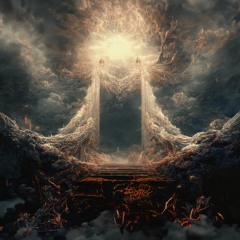The question of what happens after we die is one that has been pondered by humanity for millennia. Cultures and religions around the world have provided us with numerous descriptions of the afterlife, from serene gardens and fiery hells to reincarnation and nothingness. The potential realities of the great beyond are limited only by our imagination. This article seeks to explore some of the most intriguing conceptions of the afterlife, including a particularly modern take: the notion that even in heaven, the cost of living might be more literal than we think.
- Elysium Fields and Valhalla: Reward for the Worthy
In Ancient Greece, the Elysium Fields were thought to be the resting place of the souls deemed worthy due to their great deeds and virtuous life. It was a place of eternal happiness and peace. Norse mythology presented Valhalla, where valiant warriors would go after falling in battle, spending eternity feasting and fighting.
- Reincarnation: A Cycle of Life and Death
Eastern philosophies like Hinduism and Buddhism propose the concept of reincarnation. Upon death, the soul is reborn into a new body, determined by the karma accumulated in past lives. This cycle continues until the soul achieves moksha or nirvana, breaking free from the endless loop of birth and death.
- The Abyss of Nothingness: An Eternal Void
A more secular perspective suggests that there might be nothing after death. This concept, quite unsettling for some, purports that once life ends, consciousness ceases, leading to an eternal, dreamless sleep.
- Heavenly Rent: The Cost of Eternal Paradise
In a modern twist to the age-old concept of heaven, let’s imagine that entering paradise comes with its own set of practical concerns—namely, paying rent. While traditionally heaven is thought of as a free and eternal paradise awarded to the righteous, what if it were more like an exclusive gated community?
Upon arrival, souls are greeted by angelic real estate agents, presenting a variety of housing options, from cloud apartments to celestial mansions. The catch? Rent is due every month! Instead of monetary transactions, the currency might be acts of kindness, love, or memories from one’s life on Earth.
Those who led fulfilling, generous lives on Earth have accrued enough “heavenly currency” to comfortably afford luxurious abodes with breathtaking views of the cosmos. Others might find themselves in more modest accommodations, working off their dues by assisting newcomers or engaging in divine tasks.
This concept adds a whimsical layer to the traditional idea of heaven, suggesting that even in the afterlife, there are societal structures and responsibilities. It pushes us to reflect on the nature of reward and the inherent value of our deeds on Earth. Are we accruing enough “heavenly currency” for a comfortable afterlife? The idea challenges the long-held belief of an unequivocal eternal reward, and presents an afterlife that mirrors the complexities and nuances of our earthly lives.
- Universal Consciousness: Merging with the Cosmic Energy
Some believe that upon death, individual consciousness merges back into the universe’s collective energy. This means that the boundaries of the self dissolve, and one becomes an integral part of the cosmos, experiencing a profound sense of oneness and eternal tranquility.
The afterlife remains one of the greatest mysteries of human existence. Whether it’s a paradise where rent is due, an endless cycle of rebirth, or a union with the universe, these concepts provide a fascinating glimpse into humanity’s deepest hopes, fears, and imaginings about the unknown. As we continue to grapple with these questions, it’s a poignant reminder to cherish the time we have and the impact we make in our current, known existence.
If you enjoyed this and want to show your support, you can check out my non-fiction and children’s books at edgarescoto.com.

